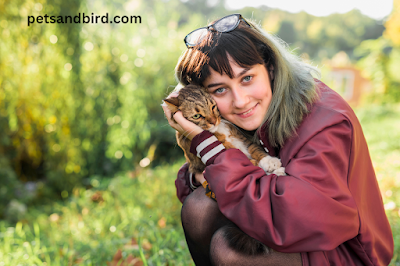In our busy lives, mental health is really important. Having a pet can make you feel happy and is a great partnership for a good mood. As we navigate through stressors and challenges, seeking solace becomes crucial. Surprisingly, one source of unparalleled comfort often overlooked is the companionship of our furry friends. This article explores the profound impact of pets on mental health, delving into the therapeutic connection that exists between humans and their animal counterparts.
The Bond Beyond Words
Pet therapy, also known as animal-assisted therapy, has gained traction in recent years as a non-traditional yet highly effective approach to mental well-being. The bond formed between humans and their pets transcends verbal communication. The unconditional love and support provided by these loyal companions create a haven of emotional security.
Stress Reduction: A Purr-fect Remedy
The demands of modern life can lead to heightened stress levels, adversely affecting mental health. Enter pets – natural stress-busters. Scientifically, the presence of pets has been linked to reduced cortisol levels, the hormone associated with stress. The simple act of petting a dog or cat has been proven to evoke a sense of calm, offering a tangible remedy for life's daily pressures.
A Walk in the Park: Physical Exercise for Mental Well-being
Physical exercise is a cornerstone of maintaining mental health, and pet ownership seamlessly incorporates this into daily routines. Whether it's a brisk walk with a dog or playtime with a lively cat, the physical activity involved not only benefits the pet but also serves as an effective stress-reliever for their human companions.
Social Butterflies: Pet Owners' Enhanced Social Life
Pets are not just furry roommates; they are social magnets. The simple act of walking a dog can spark conversations with fellow pet owners, fostering a sense of community and combating social isolation. In a world where connectivity is often digital, pets provide tangible opportunities for face-to-face interactions, enhancing social well-being.
Emotional Support Animals: More than Companionship
The term emotional support animals (ESAs) has gained prominence in mental health discourse. ESAs provide comfort and companionship to individuals facing emotional challenges. Recognized for their therapeutic benefits, these animals are prescribed by healthcare professionals to alleviate symptoms associated with various mental health conditions.
Routine and Responsibility: Pillars of Stability
The daily care and routine associated with pet ownership contribute significantly to mental health. The sense of responsibility involved in feeding, grooming, and ensuring the well-being of a pet can provide structure and purpose, particularly for individuals grappling with mental health issues.
Furry Therapists: Tail-Wagging Happiness
Beyond the realm of conventional therapy, pets offer a unique form of companionship – one that is free of judgment and rich in empathy. The sheer joy experienced in the company of a pet can elevate mood, reduce anxiety, and contribute to an overall sense of happiness.
- The Science Behind the Connection
Scientific research continues to unveil the intricate ways in which the human-animal bond positively influences mental health. Studies indicate that the release of oxytocin, the "love hormone," is heightened during interactions between humans and their pets, fostering a sense of attachment and emotional well-being.
Pet Ownership: A Holistic Approach to Mental Wellness
In conclusion, the impact of pets on mental health is multi-faceted and profound. The therapeutic connection forged between humans and their pets goes beyond the surface, delving into emotional, social, and physical realms. Whether it's the joyous wag of a tail, the soothing purr of a cat, or the companionship of an emotional support animal, pets play a vital role in promoting mental wellness. As we navigate the complexities of life, let us not underestimate the therapeutic power of the four-legged friends who stand by us, offering unwavering support and companionship.


.png)






.png)


.png)
0 Comments